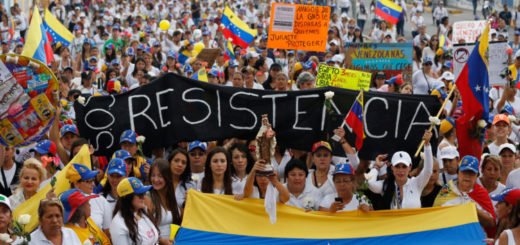The expulsions of Ambassadors brings political crisis between Spain and Venezuela
The reciprocated expulsion of ambassadors, of the unusualness and of the maximum seriousness, has lead Spain and Venezuela in a great diplomatic crisis and almost unwanted political consequences in these countries. Earlier, during the Franco regime, the Spanish ambassador was also expelled from Cuba in 1960, when Fidel Castro was the President. This Friday, the cabinet has approved the “strict reciprocity” executive order of expelling the Venezuelan ambassador from Spain in response to the exit order executed by Nicolas Maduro of the Spanish representative in Caracas.
The Foreign Minister of Spain, Alfonso Dastis, led this to the Cabinet this Friday to adopt the policy against the Venezuelan government for the expulsion communicated on Friday to the Spanish ambassador, Jesus Silva Fernandez. It had already advanced that it would be responded in a “proportionate” way but at the end, the Cabinet opted to follow the same formula for the executive of Nicolas Maduro. The Spanish government first declared persona non grata to the Venezuelan ambassador in Madrid, Mario Isea and gave him the same time limit of 72 hours that was given to the Spanish ambassador for leaving the country. As Isea is now in Venezuela because he had been called back Venezuela for consultation on Wednesday in preparing for all these actions, the Government of Rajoy hopes that he does not return to Madrid and remain in Caracas until the situation cools down. The ambassador Silva, for his part, has now returned to Spain.
The spokesman of the Spanish Executive, Íñigo Méndez of Vigo, justified this Friday the exceptional agreed measurement “of this openwork”, in addition to the reciprocity, in the declaration and the expressions “out of the tune” and “unacceptable” periodically drawn by the Venezuelan president Nicola Maduro against Spain and particularly against the Spanish Prime Minister Mariano Rajoy himself. Maduro habitually accused Rajoy and their ministers of corruption and have questioned about their work especially regarding economic front and Catalan conflict.
In theory, however, the outbreak of this new and very dangerous crisis between Spain and Venezuela have their origin to the policies of 22 January, agreed unanimously by the European Union for sanctioning the seven leaders and other high officials of the Venezuelan government which includes Nestor Reverol, Minister of the People’s Power for Interior Relations and Justice, Vice President Diosdado Cabello and the President Maduro’s electoral advisor Tibisay Lucena. The EU accused them of “undermining the democracy and the rule of law” of “violations of human rights and reducing the competition of Parliament of opposition majority dismantled by the Constituent Assembly. The Spanish government, their ambassador Silva and the EU had reiterated this Friday that these actions were passed by unanimity and not just by Spain.
Venezuela, however, as had argued in his statement of the expulsion of Silva the chancellor Jorge Arreaza, had accused Spain of heading this process of interferences and pressure from the USA.
The diplomatic source based in Venezuela have explained this unilateral reaction of Maduro’s government in the necessary step of exit of this dramatic internal situation (both economic as well as political and social) and to try to satisfy from the environment of the president to the hardest sector of the Chavism, headed by the Vice President Diosdado Cabello. On Monday, when the sanctions of the EU had met, the party controlled by Cabello sent out the hardest statement demanding an answer in accordance, which the Maduro picked up on 19 January the text of the statement in a tweet.
The imminent exit of Silva from Venezuela doesn’t leave Spain without diplomatic representation or short of rennet relations with that country. The Embassy of Spain in Venezuela is one of the most important and have some 150 persons (70 in the consulate), of more than a dozen of diplomats and other twenty with this Statue. In Venezuela resides almost 200,000 Spaniards, the third major destination after Argentina and France.
Also read: Political Crisis in Venezuela | Decoding Political Unrest in Latin America


















